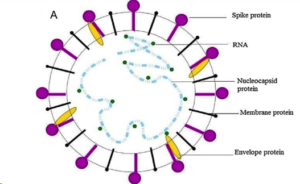

There is a growing interest in peptide-based drugs and their mimetics as potential antagonists against various pathogens. Peptide research is a crucial aspect of pharmaceutical investigations, with approximately 140 peptide-based drugs currently in clinical trials.
The reasons for using peptides in drug development are manifold. They can inhibit protein-protein interactions, serve as alternative therapies for challenging diseases, have advanced methods for extending peptide half-life, and can have a quicker time to market compared to chemical drugs. Peptide-based medications often exhibit minimal side effects and good tolerability compared to chemical drugs. However, they require special storage conditions, as the protein function may become inactive, leading to low oral bioavailability and susceptibility to rapid metabolism.
Many peptide inhibitors have shown activity against viruses and other pathogens. For example, the peptide RVFV-6, derived from the stem region of the glycoprotein Gc of Rift Valley Fever virus, prevents virus fusion during Rift Valley fever. It also exhibits activity against unrelated viruses such as EBOV and VSV. A derivative of scorpion toxin peptide Kn2-7 was identified as a potential agent against HIV-1 with low cytotoxic effects.
The lack of effective treatments has led to the development of additional therapeutic agents with improved efficacy to overcome side effects associated with current MERS treatment. In recent years, there has been a growing interest in peptide therapy due to numerous side effects associated with chemical drugs.
Antimicrobial peptides (AMPs) are excellent candidates for new therapeutic agents because they have shown antiviral activity. AMPs are components of the first line of defense in both eukaryotic and prokaryotic organisms. These small, positively charged peptides exhibit selective toxicity against Gram-positive and Gram-negative bacteria, protozoa, fungi, and viruses. Their selective toxicity is due to the negatively charged bacterial membrane compared to the positive charge of AMPs. Antiviral AMPs act through various mechanisms, including blocking virus entry through interaction with heparan sulfate, inhibiting virus entry through fusion with specific cell receptors, and preventing virus fusion through interaction with viral glycoproteins, membrane, and envelope.
There is an urgent need for the development of more effective therapies against coronaviruses such as MERS, 2019-nCoV, and potentially new, unknown, and dangerous agents. The development of protocols for use in randomized controlled trials is also essential. Research has shown that peptides have become highly effective agents in signal transmission during viral diseases. Antimicrobial peptides are expected to be a successful therapeutic option for the new MERS pathogen. Computational biology combined with virology can expedite the advanced development of peptide therapy against MERS-CoV. Additionally, repurposing existing clinically approved antiviral peptide drugs may be a promising direction for developing new agents against MERS-CoV and similar coronaviruses.